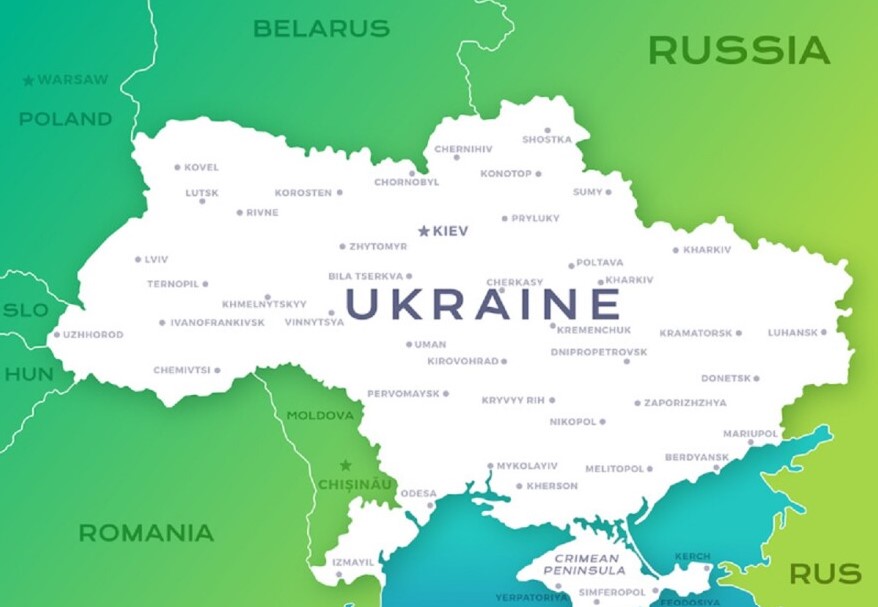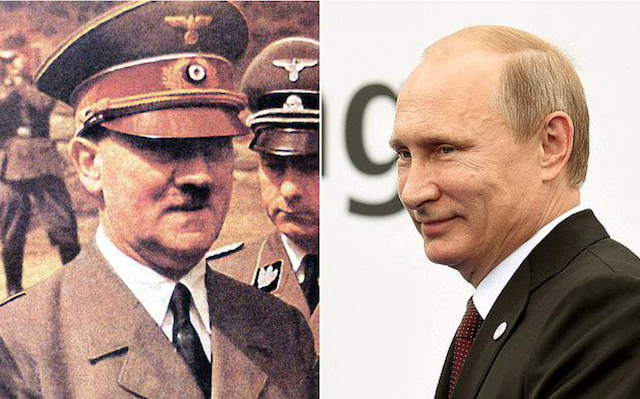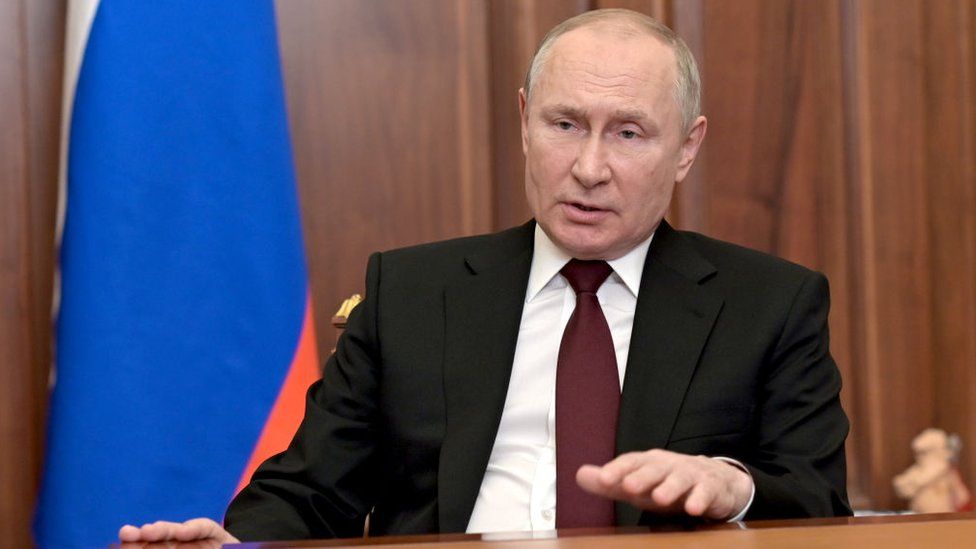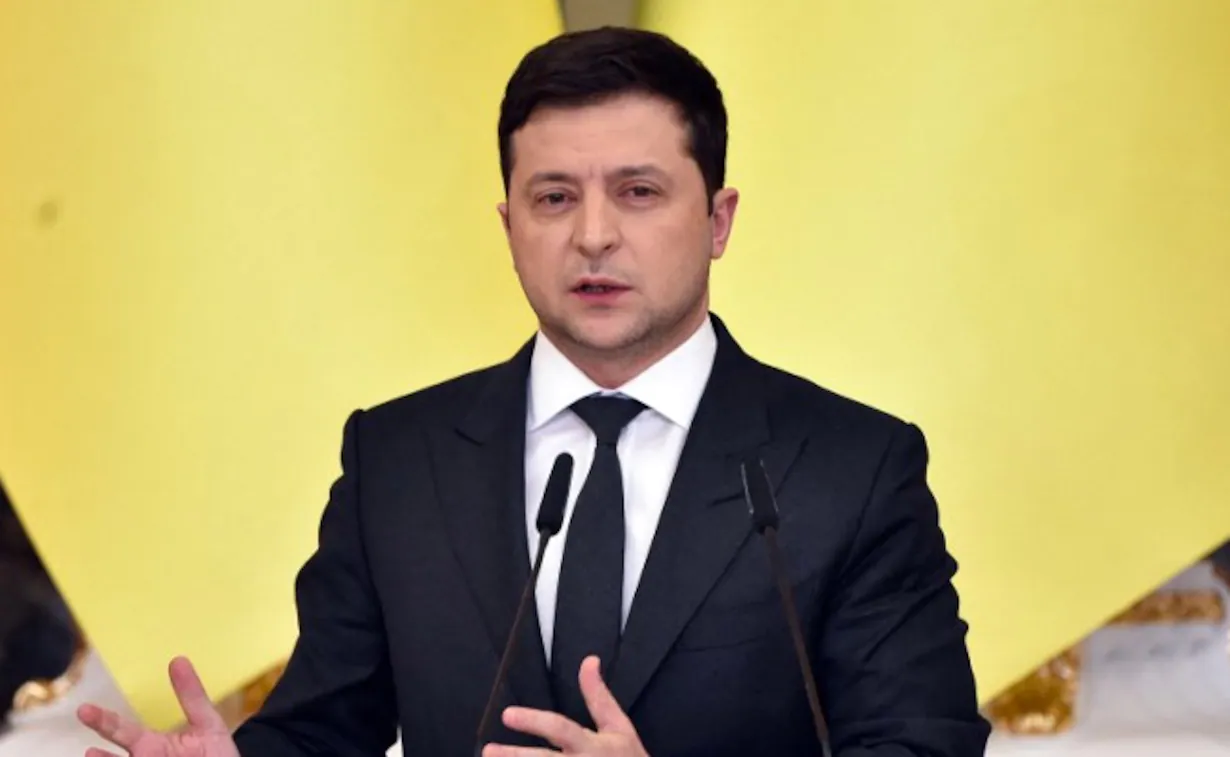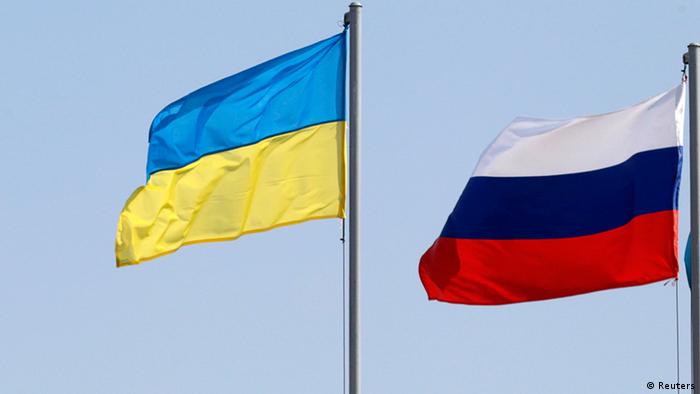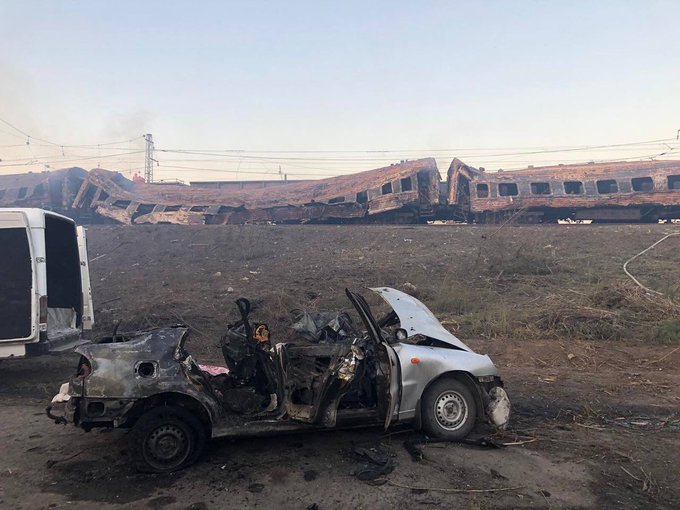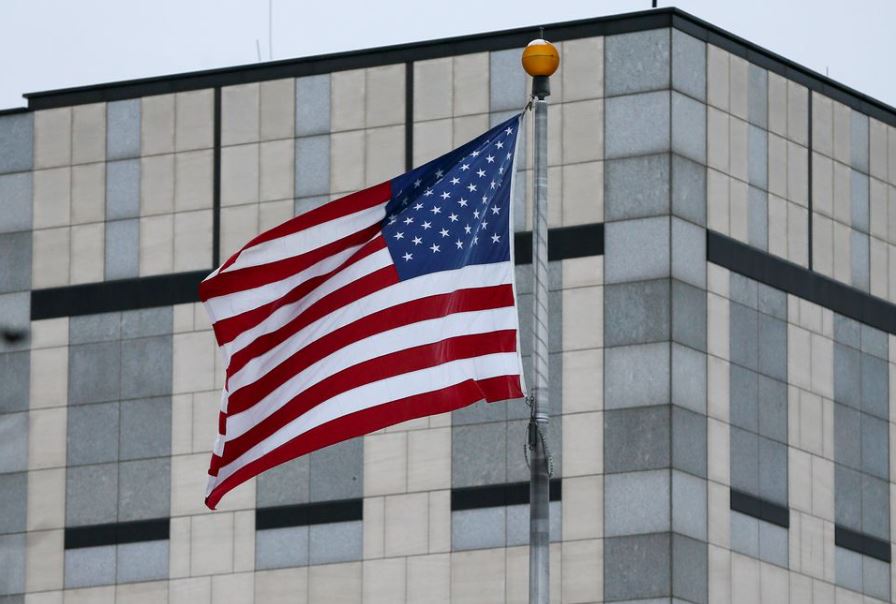Summary
Dennis Onakinor draws parallels between Russia’s President Vladimir Putin and Nazi German leader – Adolf Hitler, observing that while Hitler committed suicide amidst humiliating defeat in the 2nd World War, Putin is more likely to resort to the use of nuclear weapons if faced with defeat in the ongoing war in Ukraine. He highlights the dangers of nuclear weapons, and warns against their use under any circumstance, noting that a nuclear exchange between Russia and the US can only end in a nuclear Armageddon.
Full Article
As the Nazi German leader, who sought to impose on the world his totalitarian ideology rooted in Aryan racial superiority dogma, the story of the meteoric rise and ignominious fall of Adolf Hitler between 1933 – 1945 is well-known. What is not well-known is whether Hitler, who went by the title of “Der Further” (The Leader), would have chosen the path of suicide when faced with humiliating defeat, had nuclear weapons been part of his war machine that effortlessly conquered eight European countries between 1939 – 1941, before the beleaguered Soviet Union and Britain rallied to turn the tables, with the help of America.
With benefit of hindsight, historians posit that if Nazi Germany, instead of America, had won the race for the development of nuclear weapons during the 2nd World War, Hitler and the Axis powers of Italy and Japan might not have succumbed to defeat. For, being the unscrupulous tyrant that he was, Hitler would certainly have subjected the opposing Allied powers to a nuclear blackmail, threatening to vaporize them in a hail of nuclear bombs, just as President Harry Truman threatened to unleash “a rain of ruin from the air” upon a recalcitrant Japan that was still reeling from the devastations of Hiroshima and Nagasaki.
Apparently, President Vladimir Putin of Russia has studied the life and times of Hitler, with whom he shares the leadership traits of ultra-nationalism, irredentism, and militarism. And, he must have arrived at the conclusion that the only reason the Allied powers dared to call Hitler’s bluff was the realization that his overstretched and exhausted military machine had no backup strategy. Hence, they launched unrelenting counterattacks that saw the once-invincible German war machine beat humiliating retreats until they laid siege to its doorstep, prompting Hitler to take the easy way out via a double-suicide involving long-time lover, Eva Braun, on April 30, 1945.
Unlike Hitler, whose awesome military might was tactically vanquished by the Allied forces as the 2nd World War progressed, Putin has an ace up his sleeve in the ongoing war in Ukraine: nuclear deterrence. To boot, he rams this fact down the throat of his Ukrainian and NATO adversaries at every opportunity, reminding them that Russia would not hesitate to deploy its nuclear weapons if they pose an existential threat to the “Motherland.”
On September 21, 2022, while announcing the referendums that were designed to legitimize Russian annexation of occupied Ukrainian regions of Donesk, Lugansk, Kherson and Zaporozhye, Putin once again hinted at Russia’s readiness to use nuclear weapons in the ongoing war in Ukraine: “Washington, London and Brussels are openly encouraging Kiev to move the hostilities to our territory. They openly say that Russia must be defeated on the battlefield by any means … I would like to remind those who make such statements regarding Russia that our country has different types of weapons as well, and some of them are more modern than the weapons NATO countries have. In the event of a threat to the territorial integrity of our country, and to defend Russia and our people, we will certainly make use of all weapon systems available to us. This is not a bluff.”
Nine days later, on September 30, 2022, in course of announcing the annexation of the aforesaid Ukrainian regions, based on the stage-managed referendums, Putin again directed a similar nuclear threat to his Ukrainian and NATO adversaries: “I want the Kiev authorities and their true handlers in the West to hear me now, and I want everyone to remember this: the people living in Lugansk and Donetsk, in Kherson and Zaporozhye have become our citizens, forever … The decision has been made, and Russia will not betray it … We will defend our land with all the forces and resources we have, and we will do everything we can to ensure the safety of our people.”
For an untainted understanding of Putin’s nuclear threats, cognizance must be taken of the fact that the ongoing war in Ukraine is akin to a fight between two opponents, with one having his two hands tied behind his back. For, Russian forces are at liberty to attack Ukrainian targets with all types of lethal weapons stationed within and outside the war theatre of Ukraine, while Ukraine’s forces cannot attack Russian targets outside that theatre. This lopsided war situation is reinforced by the cautionary refusal of the US and its NATO allies to arm Ukraine with sophisticated long-range weapons capable of targeting Russian territory – a situation informed by their desire to avoid a direct military confrontation with Russia, thus averting a major conflagration in Europe.
Relatedly, Putin’s annexation of the aforesaid Ukrainian territories chimes with his calculation that Ukrainian forces would not dare to attack Russian targets within the annexed regions for fear of his retaliation with nuclear strikes, as he had been threatening of late. In this gamble, he might have miscalculated, for if Ukraine cowers away from reclaiming its annexed regions, he would certainly be emboldened to seize more territories, just as his 2014 annexation of the Crimea Region apparently served as an impetus for his latest course of action.
Historical lessons, such as Europe’s failed effort towards pacifying Hitler following his annexation of the Sudetenland region of Czechoslovakia in 1938, have shown that a swaggering militarist leader like Putin, cannot be appeased in his quest to conquer and annex the territories of a weak neighbouring country such as Ukraine. Like Hitler, Putin must be made to taste the bitter pills of defeat in order to realize his folly, although unlike Hitler, he is nuclear-armed and might irrationally resort to the weapons if humiliating defeat steers him in the face.
Retrospectively, Putin’s nuclear sabre-rattling did not begin with his ongoing senseless war in Ukraine. Back in March 2018, he gloated over Russia’s development of an advanced Intercontinental Ballistic Missile (ICMB) known as “Sarmat” that could attack targets across the globe from both the North and South poles. On that same occasion, he revealed that Russia had exclusive possession of nuclear-capable hypersonic missiles, one of which could travel at 20 times the speed of sound or Mach-20. Brimming with confidence, he issued a scarcely-disguised warning to the US and its NATO allies: “I hope that everything that was said today would make any potential aggressor think twice … Now we have to be aware of this reality and be sure that everything I have said today is not a bluff ‒ and it is not a bluff, believe me.”
And, to show that he was not “bluffing,” Putin re-echoed Russia’s nuclear policy as contained in its military doctrine: “Any use of nuclear weapons against Russia or its allies, weapons of short, medium or any range at all, will be considered as a nuclear attack on this country. Retaliation will be immediate, with all the attendant consequences.” Suffice to say that such nuclear threats have since become emblematic of his military posturing on the world’s stage.
In what could be likened to an ominous sign in his escalating nuclear threats, Putin alluded to America’s use of nuclear weapons against Japan during the 2nd World War, in course of his aforesaid September 30, 2022 national address: “The United States is the only country in the world that has used nuclear weapons twice, destroying the cities of Hiroshima and Nagasaki in Japan. And they created a precedent.”
A nagging question arises from this statement. Since America “created a precedent” in the use of nuclear weapons, would Russia be compelled to follow that “precedent” in its ongoing war in Ukraine?
The answer to this question lies solely with Putin, since it is difficult to predict what course of action the former KGB spymaster, versed in the art of simulation and dissimulation, would take at any point in time. Although, it is predictable that his use of any nuclear weapon in Ukraine would certainly attract a counter-response from the US and its NATO allies. And, since Russia does not enjoy a “Nuclear First Strike Capability,” a tit-for-tat nuclear exchange is bound to ensue, with the end-result being an apocalyptic nuclear conflagration.
Atomic or hydrogen or neutron, a nuclear bomb is the ultimate weapon of mass destruction (WMD). Apart from the immediate mass-casualty, destruction, and misery arising from its heat and blast effects upon detonation, its radioactive fallouts can affect generations yet unborn in the form of cancerous ailments. Therefore, its use should never be entertained under any circumstance, contrary to Putin’s contemplation.
It would be recalled that the two atomic bombs, which devasted Hiroshima and Nagasaki – killing more than 200,000 inhabitants, had energy yields of 15-kilotons and 22-kilotons respectively. Those two bombs pale into insignificance when compared to the energy yields of the nuclear warheads currently maintained by some nuclear-armed countries like the US, Russia, Britain, and France, many of which are in the range of 50-megatons (3,300 times more powerful than the 15-kiloton bomb dropped on Hiroshima). With Russia and the US maintaining estimates of 5977 and 5428 warheads in their respective stockpiles, a nuclear confrontation between both global geopolitical rivals can only end in a nuclear Armageddon.
Nevertheless, as the war in Ukraine grinds on, with Putin continually threatening to unleash Russia’s nuclear capabilities, the international community is learning an important lesson: that irrespective of the danger posed to humanity by nuclear weapons, they are vital in deterring aggression. Among others, North Korea’s totalitarian regime exemplifies the deterrence role of nuclear weapons in contemporary world geopolitics.
Perhaps, Russia would not have dared to invade Ukraine had the latter not given up the nuclear weapons it inherited from the Soviet Union under the “1994 Budapest Memorandum on Security Assurances.” Alas, Ukraine is now learning the vital lesson of nuclear deterrence the hard way. And, in this wise, nuclear weapon-hungry states, like Iran, must be watching the ongoing events closely, in order to see how Putin plays his ace.
- Dennis Onakinor, a global affairs analyst, writes from Lagos – Nigeria. He can be reached via e-mail at dennisonakinor@yahoo.com
